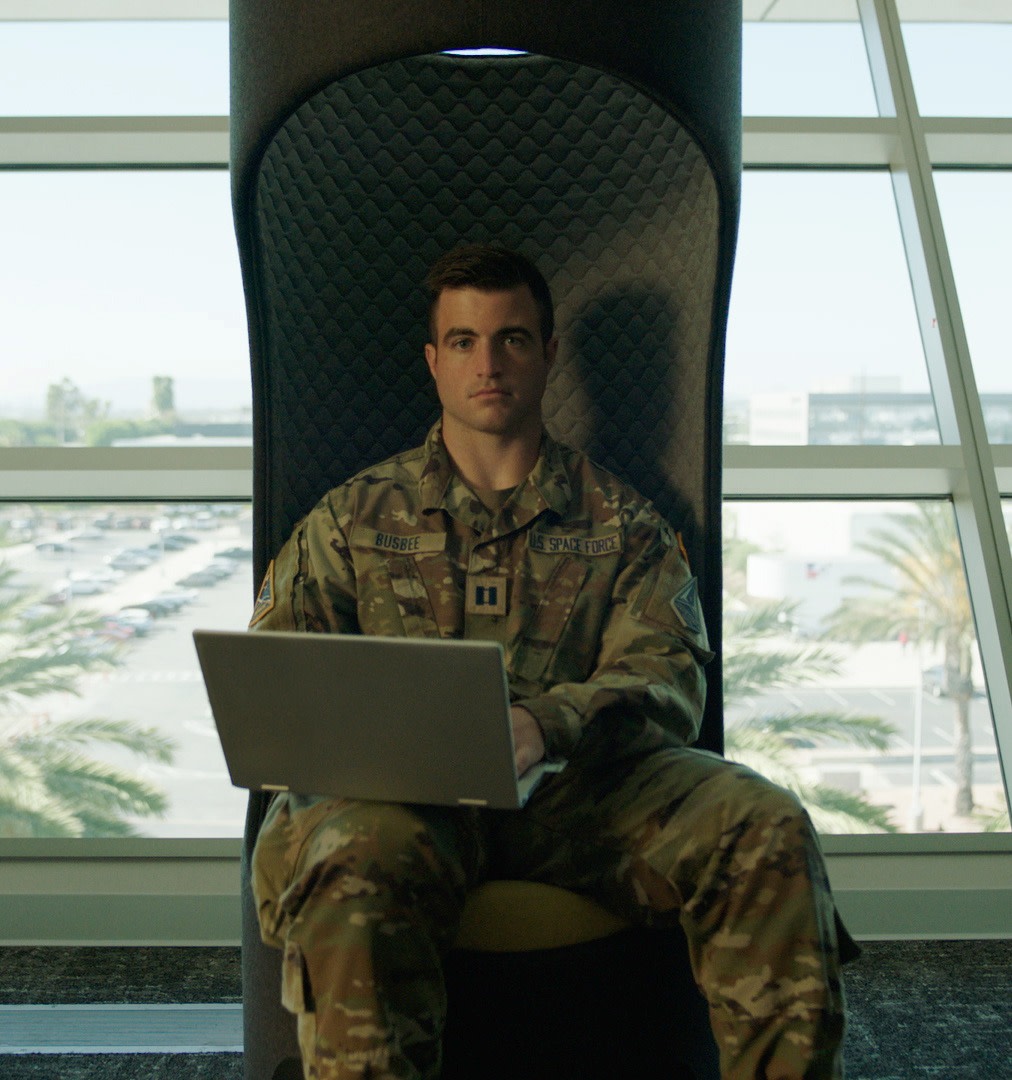Regardless of whether you choose to enlist, pursue a commission or become a civilian for the Space Force, the Space Force offers exclusive programs to help you develop skills and advance your career.
The Space Force offers full-time paid internships for students currently attending college or who have recently graduated, with hands-on training and available tuition assistance.

Getting Started
CONTINUING EDUCATION
Getting Started
AIR FORCE ROTC
Air Force ROTC is a scholarship program available at more than 1,100 colleges and universities across the country. The program develops both Air Force and Space Force’s future leaders while assisting with the cost of earning a degree. While studying at your college of choice, you will earn money for school and prepare to be an Officer in the Space Force after graduation. For the most up-to-date information, visit the official Air Force ROTC website.
THE AIR FORCE ACADEMY
The Air Force Academy offers world-class education and cost-free tuition in exchange for your service in the Space Force. The Academy has developed programs to motivate, inform, influence and inspire cadets’ interest in a career related to space. There are even summer programs, including the Azimuth Guardianship Program and Ops Space Force to assist cadets in their Space Force endeavors. For the most complete information on how to prepare and apply, visit the Academy Admissions website.
CONTINUING EDUCATION
VOLUNTARY EDUCATION PROGRAM
The Department of the Air Force (DAF) Voluntary Education Program supports Guardians by maintaining a highly educated force. The program supports off-duty voluntary education goals for officers in pursuit of master’s degree through tuition assistance.
MILITARY TUITION ASSISTANCE
The Military Tuition Assistance (MilTA) program helps officers on active duty pursue voluntary, off-duty educational opportunities. The program pays tuition costs of up to $250 per semester hour or $166 per quarter hour for college tuition, with a fiscal year cap of $4,500.
ADVANCED ACADEMIC DEGREE PROGRAM
Advanced Academic Degree (AAD) and Special Experience Exchange Duties (SPEED) program is a partnership for higher education. The AAD-SPEED program offers a unique opportunity for Guardians to pursue a master’s degree or PhD from the Air Force Institute of Technology (AFIT) or a partner civilian institution, including those that are part of the service’s University Partnership Program (UPP). Upon graduation, Guardians are placed in specific assignments that leverage their advanced knowledge and skill sets.
UNIVERSITY PARTNERSHIP PROGRAM
The Space Force established the University Partnership Program (UPP) to recruit, educate, and develop competent and diverse Guardians and engage in research and technology to secure the nation’s interests and maintain its advantage in space. The UPP has four specific objectives: establish opportunities, pursue research, establish scholarships, internships, and mentorship opportunities, and recruit. Currently, the UPP has partnerships with 14 universities (Arizona State University, Clemson University, Georgia Institute of Technology, Howard University, Massachusetts Institute of Technology, North Carolina Agricultural and Technical State University, Purdue University, University of Colorado Boulder, University of Colorado Springs, University of North Dakota, University of Puerto Rico Mayagüez, University of Southern California, University of Texas at Austin, and University of Texas at El Paso). The UPP’s objective with these strategic partnerships is to create opportunities for advanced academic degrees (AAD) and workforce development for all Guardians (officer, enlisted and civilian).
SCHREIVER SPACE SCHOLARS PROGRAM - INTERMEDIATE LEVEL EDUCATION
The Schreiver Space Scholars Program - Intermediate Level Education (ILE) is a highly selective Space Force program designed for military officers, government civilians and partner nation students through a tailored track within the Johns Hopkins School of Advanced International Studies (SAIS) Master of International Public Policy degree. It is offered in-residence at the Hopkins Bloomberg Center at Washington, D.C. This unique one-year master’s program annually selects a group of talented, strategic-level military officers, government civilians from multiple agencies and partner nation military officers to participate in distinctive curriculum leading to a Master in International Public Policy (MIPP) degree.
WEST SPACE SCHOLARS PROGRAM - SENIOR LEVEL EDUCATION
TheWest Space Scholars Program - Senior Level Education (SLE) is another highly competitive Space Force program designed for military officers, government civilians and partner nation students through a tailored track within the Johns Hopkins SAIS Master of International Public Policy degree. It is offered in-residence at the Hopkins Bloomberg Center in Washington, D.C. This unique one-year master’s program annually selects a group of talented, senior, strategic-level military officers, government civilians from multiple agencies, and partner nation military officers to participate in distinctive curriculum leading to a Master in International Public Policy (MIPP) degree.
AIR FORCE INSTITUTE OF TECHNOLOGY
The Air Force Institute of Technology (AFIT) is a selective DAF program that allows Space Force Officers to pursue graduate studies as a full-time, active-duty assignment in the areas of science, technology, engineering and mathematics (STEM). Located at Wright-Patterson Air Force Base in Ohio, AFIT is a world leader in defense technological education, research and consultation. It is also the Air Force’s graduate school of engineering and management as well as its institution for professional, continuing education.
AFIT’S AIR FORCE GRADUATE SCHOOL FOR ENGINEERING AND MANAGEMENT
AFIT’s Air Force Graduate School for Engineering and Management is among the nation’s top engineering schools and enables officers to earn a master’s degree or Ph.D. in one of more than 20 areas of specialization.
AFIT CENTER FOR CYBERSPACE RESEARCH
Helping train and equip future Guardians for cyber careers, the AFIT Center for Cyberspace Research (CCR) conducts defense-focused research at the graduate level. The center responds to the changing educational and research needs of the Air Force, Space Force, Department of Defense and federal agencies.
POST-9/11 GI BILL
Once completing the service requirements, Guardians are eligible for GI Bill benefits. Guardians can receive up to 36 months of benefits for education and training opportunities outside of the Space Force through the Post-9/11 GI Bill. These benefits may be used for undergraduate and graduate degrees, vocational and technical training, tutorial assistance, books, and supplies. Additionally, there is a monthly housing stipend with the educational benefits. Another benefit following the service requirement is the possibility to transfer the benefit to your spouse or dependent children. As of 1 January 2013, your benefits do not expire, thanks to a law called the Forever GI Bill: Harry W. Colmery Veterans Educational Assistance Act.
MONTGOMERY GI BILL (MGIB)
The Montgomery GI Bill (MGIB) is a GI Bill option a Guardian can choose to participate in that assists in paying for college. Eligible Guardians may receive up to 36 months of benefits for education and training opportunities outside of the Space Force. The possibility to transfer the benefit to your spouse or dependent children does not exist with this option, and there is no monthly housing stipend. These benefits may be used for degree and certificate programs, flight training, apprenticeship, or on-the-job training and correspondence courses. This benefit option is payable for 10 years following release from active duty.
